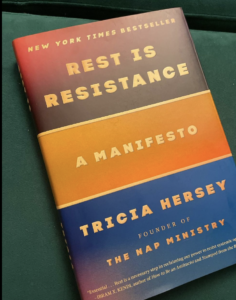global village
Here at Suzanne Barr Food, we are reshaping our community by sharing traditions, discovering new customs, understanding the importance of sourcing ethical ingredients and recipe preservation techniques that disband culinary biases and realign connections to our cultural foodways.
Consider the people who feed us

Have you ever thought about the people behind our food?
The tireless souls who work to put meals on our tables, often facing hardships and dangers unknown to many of us. Field workers endure extreme conditions, such as sweltering heat, with farm workers being significantly more susceptible to heat-related illnesses. Access to basic necessities like breaks, water, and shade becomes a crucial lifeline in safeguarding their well-being.
Tragically, some agricultural workers experience conditions akin to modern-day slavery, enduring physical and psychological abuse while living in deplorable settings. Despite being the backbone of a multi-billion-dollar industry, farm workers remain among the most impoverished and vulnerable groups in North America. Their struggles encompass hazardous work environments, inadequate pay, and the sacrifice of children’s education for basic survival.
The systemic issues plaguing the agricultural sector, from exploitation to lack of regulation, demand our attention and action. While some progress has been made, much work lies ahead to ensure that those who labor to feed others are treated with dignity and respect. It’s imperative to shed light on these injustices and advocate for meaningful change to create a fairer and more equitable food system
.
you can show solidarity by supporting your local farm worker unions/organizations
“The farm worker movement is for everybody” Reyna Lopez PCUN Executive Director
you can show solidarity by supporting your local farm worker unions/organizations
“The farm worker movement is for everybody” Reyna Lopez PCUN Executive Director
Watch a short doc
https://youtu.be/r4FO7CRl6kY?si=q3oJ9MTynYWX1_5R
learn more at
https://foodchainworkers.org/programs/
if you’re in N America
We the Land!
A Gathering For Indigenous, Black, Latinx, Asian, SWANA & PoC Earth Workers, Land Stewards & Farmers
August 2 – 4 | Northampton, MA
Why We Support Unions and You Should Too

This month, our focus is on highlighting the importance of unions and showing up to offer our support. Picture unions as allies for workers, like having a dedicated team by your side through the ups and downs of the job.
They’re the partners who are dependable and stand up against unfair treatment, who are always advocating for better conditions.
When workers unite through a union, they become a powerful force to be reckoned with. They can address issues like discrimination, unsafe working conditions, and unfair treatment.
But it’s not just about looking out for workers—unions also contribute to making businesses better. By championing fairness and equality, they foster happier, healthier workplaces where everyone can thrive.
In essence, unions represent collective strength, where workers join together to amplify their voices and drive positive change. It’s akin to having a support network that is robust, that empowers individuals to stand up for what’s right and forge a brighter future together.
Yet, unions encounter challenges, from weak labor laws to resistance from employers. This is where our support matters. By backing our local unions and advocating for workers’ rights, we can help shape a world where everyone is treated with dignity and respect.
Patty Wars

Have you ever heard about the Patty wars in Canada?
Patty vs. Patty tells the story of how in 1985 Toronto government officials attempted a “patty wars,” when Jamaican-Canadian bakers went head-to-head with the federal government over the name of their beloved beef patty. At the time, the Meat Inspection Act determined a beef patty to be what goes in a hamburger.
Patty Wars… A Short Documentary
For Afro Mundo’s Recipe Month, we’re featuring a special “hot pocket” known as the Empanada. While the information above relates to a Jamaican patty, it highlights a cultural connection to the empanada. This story reveals how something as seemingly simple and delicious as a “pocket” can cause trouble for immigrants in places like North America. Fortunately, despite the racially charged conflict and institutionalized racism, a compromise was reached. However, it raises questions about the ways cultures have been forced to erase parts of their heritage due to arbitrary capitalist and colonial rules.
A part of our monthly offers is to showcase interesting stories and facts about the food we love and share. We love empanadas, love patties (excuse me, Jamaican patties) and we love to point out these foodway connections with every recipe given in our memberships.
If you enjoy these, think about all the other goodies you may be missing by not getting our monthly recipes.
Here’s more examples of cultural “hot Pockets”
Gyoza: Japanese. They’re essentially wonton wrappers that are stuffed with pork and cabbage before they’re pan-fried and often served with a sweet-spicy dipping sauce.
Pierogi: Polish. It’s unleavened dough around a soft filling of meat, fruit, or potato and cheese. Originally a peasant food, it’s like a dumpling—cooked in boiling water—and oh-so-delicious.
Panzerotti: Italian. It’s a deep-fried pocket of dough usually filled with cheese. Deep-fried and eaten hot, it’s what a Hot Pocket aspires to.
Afro Mundo Festival

AfroMundo is a nonprofit hosting an annual festival in New Mexico celebrating food, music, and culture. Their mission is to connect diasporic communities, foster alliances, and provide a visible platform for sharing our stories, with a common goal of advancing equity, healing, joy, and hope.
this year’s festival, themed “Maroons, Rebels, Dreamers & Visionaries” featuring Colombia, Costa Rica, Jamaica & the USA.
Chef Suzanne Barr will be joining as a chef and author on April 13-20th.
Motivated by Afro Mundo’s vision and mission, we chose to synchronize the theme for our second month of membership with the festival, demonstrating solidarity with their cause.
“Hay que comer para vivir, no vivir para comer”
Translation: Eating to live, not living to eat”
Manifesting liberation

When feeling like all the ways of resistance isn’t enough and you are starting to feel helpless and hopeless…..
Why not try to manifest liberation?
Some people believe if you focus on something every day for at least 30 seconds, you can manifest it. We’ve added this form of resistance to our practice and wanted to share it with you.
How to do it?
Set a timer for 30 seconds (as time goes on, you may go over a minute or more and that’s fine, the point is to focus for at least 30 seconds or more).
Sit somewhere quiet, where you can’t be interrupted.
Either close your eyes or fix them on a point on the wall.
State the land or people that you are focusing on.
You can go off of the example that we give here or create one that works best for you. This is what some of us do.
Start by saying “Land/People” are free! They are healing. They are finding their people and sharing beautiful meals and moments. They are learning how to be free people. They are autonomous. They are thriving. They are free. They are grieving and mourning in the way that is appropriate for them. They are rebuilding. They are returning home. They are free. They are thriving. They are healing. They know what their people need and they have control over their land and their rights. No outside interference is there, only love and support. The people or land is free, they are thriving and healing.”
This is just an example of what you can say.
If possible, think about what it would feel like when the thing you hope to manifest happens. What will the feeling be? What will the look on the people’s faces be? What will the coming months, years, decades look like? There really is no limit to this practice.
Let your heart and hopes guide you.
We concentrate on about 4-5 different places and people at this moment. This is sure to grow as we learn and understand more of what is happening in all the places of the world.
It’s good to send love and gratitude to the people as well.
Another thing to note, when doing this practice, make sure to state the positive things, don’t say anything like “There’s no…..” or “I hope to see” or let any roadblocks hinder the flow.
Only imagine the hopeful event/situations to happen. Act and imagine as if the thing you want is possible, because it is.
Please do this daily
In love and resistance!
SBF Team
Rest is Resistance

Part of last year’s teaching in the SLOW DOWN, this beautiful book became a part of our unlearning and learning.
Have you read it?
Do you follow thenapministry on IG?
OOOOOH, you should!
Get it!